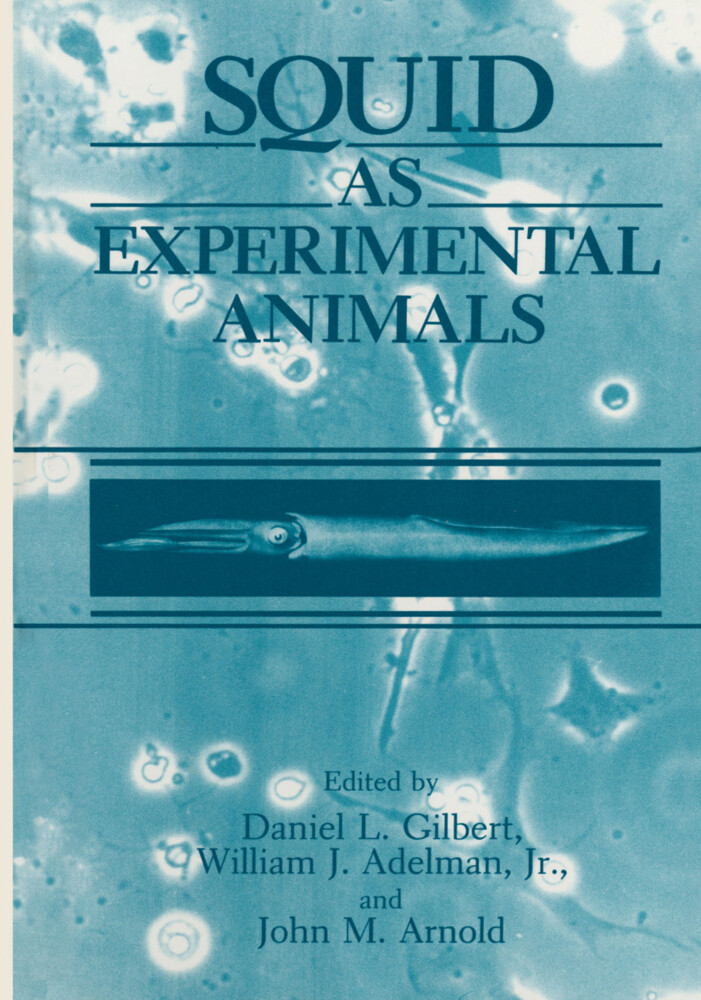
Zustellung: Sa, 18.01. - Di, 21.01.
Versand in 2 Tagen
VersandkostenfreiBestellen & in Filiale abholen:
The predecessor to this book was A Guide to the Laboratory Use of the Squid Loligo pealei published by the Marine Biological Laboratory, Woods Hole, Massachusetts in 1974. The revision of this long out of date guide, with the approval of the Marine Biological Laboratory, is an attempt to introduce students and researchers to the cephalopods and particularly the squid as an object of biological research. Therefore, we have decided to expand on its original theme, which was to present important practical aspects for using the squid as experimental animals. There are twenty two chapters instead of the original eight. The material in the original eight chapters has been completely revised. Since more than one method can be used for accomplishing a given task, some duplication of methods was considered desirable in the various chapters. Thus, the methodology can be chosen which is best suited for each reader's requirements. Each subject also contains a mini-review which can serve as an introduction to the various topics. Thus, the volume is not just a laboratory manual, but can also be used as an introduction to squid biology. The book is intended for laboratory technicians, advanced undergraduate students, graduate students, researchers, and all others who want to learn the purpose, methods, and techniques of using squid as experimental animals. This is the reason why the name has been changed to its present title. Preceding the chapters is a list of many of the abbreviations, prefixes, and suffixes used in this volume.
Inhaltsverzeichnis
I. Evolution, History, and Maintenance. - 1 Evolution and Intelligence of the Cephalopods. - 2 Natural History and Collection. - 3 Lol-i-go and Far Away: A Consideration of the Establishment of the Species Designation Loligo pealei. - 4 Maintenance, Rearing, and Culture of Teuthoid and Sepioid Squids. - II. Mating Behavior and Embryology. - 5 Squid Mating Behavior. - 6 Embryonic Development of the Squid. - III. Neural Membranes. - 7 Electrophysiology and Biophysics of the Squid Giant Axon. - 8 Internal Dialysis in the Squid Giant Axon. - 9 The Cut-Open Axon Technique. - 10 Optical Measurements on Squid Axons. - 11 The Preparation of the Squid Giant Synapse for Electrophysiological Investigation. - IV. Cell Biology. - 12 Tissue Culture of Squid Neurons, Glia, and Muscle Cells. - 13 Squid Optic Lobe Synaptosomes: Structure and Function of Isolated Synapses. - 14 The Cytoskeleton of the Squid Giant Axon. - 15 Studying Axoplasmic Transport by Video Microscopy and Using the Squid Giant Axon as a Model System. - 16 Lipid Metabolism In The Squid Nervous System. - V. Sensory Systems. - 17 Structure and Function of the Squid Eye. - 18 Development of the Squid s Visual System. - 19 The Statocysts of Squid. - VI. Integrated Systems. - 20 Gas Transport in the Blood. - 21 An Organophosphorus Detoxifying Enzyme Unique to Squid. - 22 Squid as Elite Athletes: Locomotory, Respiratory, and Circulatory Integration.
Produktdetails
Erscheinungsdatum
30. Mai 2013
Sprache
englisch
Auflage
Softcover reprint of the original 1st ed. 1990
Seitenanzahl
552
Herausgegeben von
W.J., Jr. Adelman, J.M. Arnold, D.L. Gilbert, W. J. Adelman
Verlag/Hersteller
Produktart
kartoniert
Abbildungen
XXXII, 516 p.
Gewicht
1025 g
Größe (L/B/H)
254/178/30 mm
Sonstiges
Paperback
ISBN
9781489924919
Entdecken Sie mehr
Bewertungen
0 Bewertungen
Es wurden noch keine Bewertungen abgegeben. Schreiben Sie die erste Bewertung zu "Squid as Experimental Animals" und helfen Sie damit anderen bei der Kaufentscheidung.










